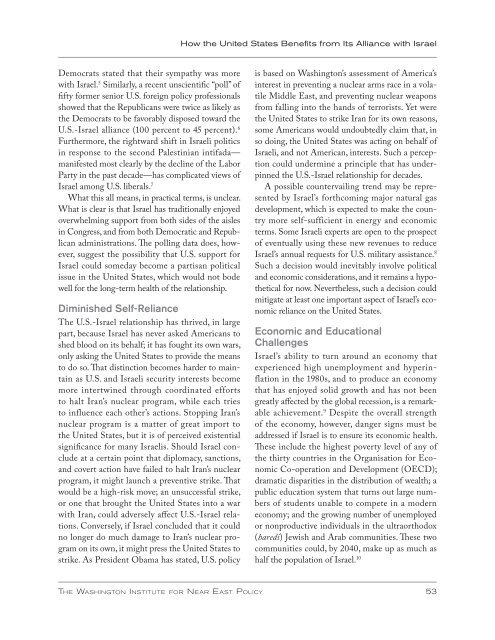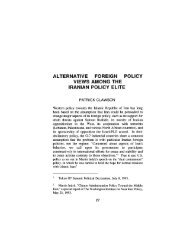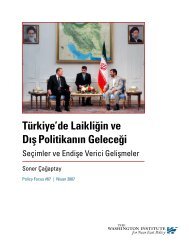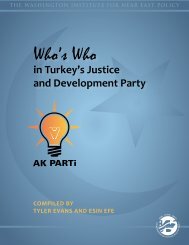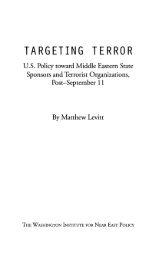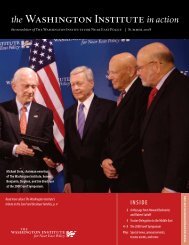Michael Eisenstadt David Pollock How the United States Benefits ...
Michael Eisenstadt David Pollock How the United States Benefits ...
Michael Eisenstadt David Pollock How the United States Benefits ...
Create successful ePaper yourself
Turn your PDF publications into a flip-book with our unique Google optimized e-Paper software.
Democrats stated that <strong>the</strong>ir sympathy was more<br />
with Israel. 5 Similarly, a recent unscientific “poll” of<br />
fifty former senior U.S. foreign policy professionals<br />
showed that <strong>the</strong> Republicans were twice as likely as<br />
<strong>the</strong> Democrats to be favorably disposed toward <strong>the</strong><br />
U.S.-Israel alliance (100 percent to 45 percent). 6<br />
Fur<strong>the</strong>rmore, <strong>the</strong> rightward shift in Israeli politics<br />
in response to <strong>the</strong> second Palestinian intifada—<br />
manifested most clearly by <strong>the</strong> decline of <strong>the</strong> Labor<br />
Party in <strong>the</strong> past decade—has complicated views of<br />
Israel among U.S. liberals. 7<br />
What this all means, in practical terms, is unclear.<br />
What is clear is that Israel has traditionally enjoyed<br />
overwhelming support from both sides of <strong>the</strong> aisles<br />
in Congress, and from both Democratic and Republican<br />
administrations. The polling data does, however,<br />
suggest <strong>the</strong> possibility that U.S. support for<br />
Israel could someday become a partisan political<br />
issue in <strong>the</strong> <strong>United</strong> <strong>States</strong>, which would not bode<br />
well for <strong>the</strong> long-term health of <strong>the</strong> relationship.<br />
Diminis


